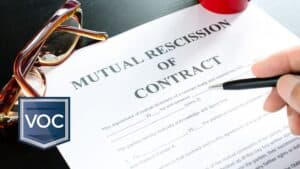A global pandemic isn’t exactly something you can anticipate or really even prepare for. Within weeks, each of our lives have been altered in some way shape or form. No matter how social you were before, we’re all getting used to the disappearance of familiar faces and places. It seems like it was just yesterday that our time was dominated by busy routines and ulterior motives. Now, we’re faced with quite a bit of unknown. As a timeshare owner, you may have no idea what to do.
If there’s one thing that’s for certain though, it’s that a number of cost cutting measures will take place across the globe. Whether you’re the head of the household or a corporate CEO, you’re probably going to have to make some decisions regarding your bottom line at some point down the road. You might be forced to sacrifice some of the things – or even relationships – that you’ve grown accustomed to over the years just to pay the bills.
The Result of a Global Budgetary Analysis.
As people scramble to find a way to make money during a stand still, it’s going to be difficult for them to ignore an overzealous budget. As a result, many will abruptly eliminate unnecessary spending habits to find immediate financial relief – creating a giant snowball effect that causes even more problems for others. When a large percentage of the population stops buying luxury items, those supplying these products and services will suffer – as will their employees.
While essential businesses will more than likely thrive during this time, some don’t even know how they’re going to survive. Billion dollar corporations that used to swim in their daily harvest are now barely able to rake in any type of revenue. Some are getting creative while others simply throw millions at online advertising, hoping it sticks. Either way, many will eventually look to take extreme measures to overcome extreme losses and sustain profitability. Oftentimes, this comes at the expense of loyal customers.

Should Timeshare Owners Be Worried?
Most large purchases include financial options that aid consumers during a crisis or hardship. For the most part, companies are willing to work with their customers to ensure payments continue and collection or legal actions are avoided. This is happening even more frequently today as millions of people struggle to cover their expenses. At the same time, some operations are leaning on their contractual agreements to pull them through rough waters.
To date, it seems like timeshare companies are sticking to the strategy that’s allowed them to rise to a state of prominence that many will never attain. In other words, it would surprise us to see timeshare resorts treat a global pandemic like a disadvantage to them – not necessarily their owners. You see, most view the decision to purchase a timeshare as a binding one. This means, through thick and thin or for better or worse if you will.
Whether you like it or not, you have to think of a timeshare purchase like that of a house or car. If someone unexpectedly changes all of the locks to your house, you can’t expect the bank to pay for the locksmith or a hotel stay. If your pool gets struck by lightning and the foundation is cracked then the homeowners association won’t buy you a season pass to the waterpark. You’re forced to deal with the cards you were dealt, in the house you chose to purchase. While a timeshare is literally nothing like a permanent residence, the resort will unfortunately view it this way because of the contract you signed.

Why the Cost of Vacation Ownership Could Rise.
Over the years, many of our clients have hired us because they can’t even use their timeshare. The resort’s lack of compassion has already frustrated tens of thousands of buyers. If those with unexpected health conditions or financial problems haven’t been able to get out of timeshares in the past, is there actually a reason to believe this will change? Is it really plausible to think they’re going to bail out contracted owners when their entire operation is shut down?
Truth be told, COVID-19 has probably hurt the hospitality industry more than anyone. Resorts are completely empty, forcing many to let go of key members of their staff. It’s not exactly the perfect scenario for timeshare companies to have a change of heart. So as you continue paying while waiting for your timeshare to take care of you, it’s important that you consider the papertrail.
When unexpected incidents occur at resorts, timeshare owners often foot the bill. No matter the level of inconvenience it causes, buyers are forced to adhere and wait for resolve. After all, it’s what they signed up for – even if you didn’t know. So for those of you that are wondering how your timeshare may handle this global pandemic, the best place to look is how they handle assessment fees.

Special Assessments Are Never Convenient.
If you’re hearing about assessments for the first time, just know you’re not alone. A good portion of first time buyers aren’t even aware of annual maintenance fees. So when an unexpected event occurs at the resort, they’re normally caught off guard when they receive an invoice. One of the most common scenarios involves natural disasters.
Unexpected Natural Disasters Are A Good Example.
People that purchase a timeshare vacation in a tropical destination rarely think about the possibility of a hurricane, earthquake, tornado, flood or even volcanic eruption. Even if they did, most assume they can travel around the occurrence. When you’re not a resident of susceptible areas, it can be difficult to know just how damaging a natural disaster can be. Either way, would they still make the purchase if they knew repair costs from natural disasters (in the form of an assessment) would be spread out amongst owners?
The problem with the timeshare sale is that most agents don’t fully disclose all obligations. Timeshare companies aren’t concerned with their buyer’s budget when the property is damaged and unusable. If they did then, they wouldn’t ask for thousands of dollars in a matter of months or refuse access to anyone that doesn’t comply. What makes matters worse is resorts have been known to invest in shoddy repairs just to get the property back open for business. This was apparent in Houston when barricades didn’t stop the ocean from taking over the shoreline.
Owner Obligations Benefit the Resort.
Due to their contract, owners have to cover assessment costs in order to avoid a breach and further penalties. Aside from an inability to access what they paid for, they’re forced to cover the costs of a property that they truly don’t own. If you’re not prepared for something like this, it can be rather devastating financially. Kind of like a global pandemic.
When unsettled owners complain about the inconvenience, most are met with a straightforward answer. They’re simply told that they should have known the risks of the area during the purchase and that they signed a binding agreement they’re obligated to honor. At the end of the day, timeshare owners help the resort maintain an income during an unexpected phase of construction repairs. So who’s to say they won’t lean on timeshare owners now?

Hopefully Timeshare Companies Change.
Although it’s hard to tell exactly what will occur, it’s always best to be prepared for the worst. For all we know this could be over in a matter of months. If it is, timeshare companies may not have to do much to make inconvenience go away. But if the hospitality industry is shut down for a long time, desperate times may elicit desperate measures. While you may be hopeful about your timeshare contract now, it could get rather costly in the near future.
With that being said, we’ve found that a global pandemic has given us an opportunity to educate hundreds of timeshare owners across the country. Many of you are worried right now – and rightfully so – but clarity can go a long way. Speaking with a professional team that isn’t force-feeding you a solution can be extremely beneficial during this time. Just remember, one of our consultants is only a phone call away. If you’ve decided to commit to canceling your agreement, then you can always fill out one of our eligibility forms below.






